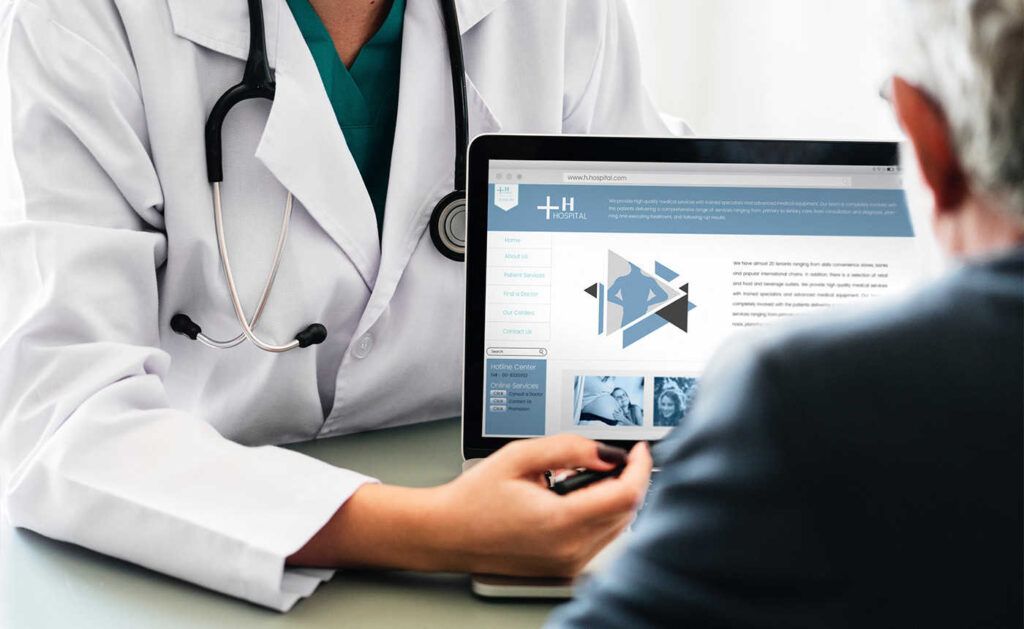Introduction
A hospital management system (HMS) is a software platform designed to improve the efficiency and effectiveness of healthcare delivery in hospitals and clinics. In India, HMS has become increasingly popular due to the growing demand for quality healthcare services and the need to manage the large patient volumes in hospitals.
HMS solutions are designed to streamline and automate various healthcare processes, from patient registration and appointment scheduling to billing and inventory management. By providing a single platform for managing these processes, HMS can help hospitals to save time and resources, reduce errors, and improve patient outcomes.
Patient registration and management
Patient registration and management is one of the key features of the hospital management system in India. This feature enables hospitals to efficiently manage patient information and streamline the registration process, making it easier for patients to access healthcare services.
With patient registration and management in HMS, hospitals can store patient information in a central database, including demographic information, medical history, allergies, and other relevant details. This information can be accessed by authorized healthcare providers, making it easier to provide personalized care and treatment.
HMS also enables hospitals to manage patient appointments, including scheduling, rescheduling, and cancellations. Patients can schedule appointments online or through the hospital’s call center, reducing wait times and improving access to healthcare services.
Another key advantage of patient registration and management in HMS is the ability to track patient data over time. This allows healthcare providers to monitor changes in patient health and make informed decisions about treatment plans, medications, and other interventions.
Overall, patient registration and management in HMS can help hospitals to improve the patient experience, increase efficiency, and reduce errors in managing patient data.
Electronic medical records (EMRs)
Electronic medical records (EMRs) are an important feature of the hospital management system in India. EMRs enable hospitals to digitize and manage patient medical records, making it easier for healthcare providers to access and share patient information.
With EMRs in HMS, hospitals can create a comprehensive digital record of each patient’s medical history, including past treatments, medications, and test results. This information can be easily accessed by authorized healthcare providers, making it easier to provide personalized care and treatment.
EMRs also offer several advantages over traditional paper-based medical records. For example, they are more secure and less prone to errors, as they can be protected with advanced encryption and access controls. They also enable faster and more accurate data analysis, which can help hospitals to improve patient outcomes and reduce costs.
In addition, EMRs in HMS can be integrated with other healthcare systems and devices, such as lab equipment and medical imaging systems. This enables healthcare providers to access and analyze data from multiple sources, providing a more complete picture of patient health and enabling more informed decision-making.
Overall, EMRs are a critical feature of the hospital management system in India, enabling hospitals to improve the quality of care, reduce costs, and enhance patient safety and satisfaction.
Appointment scheduling and reminders
Appointment scheduling and reminders are other important features of the hospital management system (HMS) in India. This feature enables hospitals to efficiently manage patient appointments, reducing wait times and improving access to healthcare services.
With appointment scheduling and reminders in HMS, patients can schedule appointments online, through the hospital’s call center, or through a mobile app. This makes it easier for patients to schedule appointments at their convenience, reducing the burden on hospital staff and improving the patient experience.
HMS also includes automated reminders for upcoming appointments, reducing the likelihood of missed appointments and ensuring that patients receive the care they need in a timely manner.
Another advantage of appointment scheduling and reminders in HMS is the ability to reschedule and cancel appointments. Patients can easily change their appointments online or through the hospital’s call center, reducing the likelihood of missed appointments and improving the efficiency of the hospital’s scheduling process.
Overall, appointment scheduling and reminders in HMS can help hospitals to improve access to healthcare services, reduce wait times, and enhance the patient experience. They also reduce the workload on hospital staff, enabling them to focus on providing high-quality care to patients.
Billing and payment processing
Billing and payment processing are critical features of the hospital management system (HMS) in India. This feature enables hospitals to efficiently manage billing and payments, reducing errors and improving revenue collection.
With billing and payment processing in HMS, hospitals can generate bills and invoices for patients, including itemized charges for services such as consultations, tests, and procedures.
HMS also includes automated payment processing, enabling patients to pay their bills online, through the hospital’s call center, or through a mobile app. This reduces the need for manual payment processing and makes it easier for patients to pay their bills in a timely manner.
Another advantage of billing and payment processing in HMS is the ability to generate reports on billing and revenue collection. Hospitals can use these reports to monitor billing activity, identify trends, and optimize revenue collection processes.
Overall, billing and payment processing in HMS can help hospitals to improve revenue collection, reduce errors, and enhance the patient experience. They also reduce the workload on hospital staff, enabling them to focus on providing high-quality care to patients.
Inventory management
Inventory management is another important feature of the hospital management system (HMS) in India. This feature enables hospitals to efficiently manage their inventory of medical supplies and equipment, reducing waste and ensuring that critical supplies are always available when needed.
With inventory management in HMS, hospitals can track their inventory levels in real time, enabling them to monitor usage patterns, identify trends, and optimize inventory levels. This helps to reduce waste and minimize the risk of stockouts, ensuring that critical supplies are always available when needed.
HMS also includes automated reordering, enabling hospitals to automatically reorder supplies when inventory levels reach a pre-defined threshold. This helps to ensure that hospitals always have the supplies they need, without overstocking or understocking.
Another advantage of inventory management in HMS is the ability to track the movement of supplies and equipment within the hospital. Hospitals can use this information to optimize supply chain processes, improve inventory accuracy, and reduce the risk of theft or loss.
Overall, inventory management in HMS can help hospitals to reduce waste, optimize inventory levels, and improve the efficiency of supply chain processes. They also ensure that critical supplies and equipment are always available when needed, enabling hospitals to provide high-quality care to patients.
Also read:-5 Prime Technologies Used by top Web Design Company in UK
Conclusion
In conclusion, the hospital management system (HMS) in India is a comprehensive solution that enables hospitals to improve their operations and provide high-quality care to patients. Features such as patient registration and management, electronic medical records, appointment scheduling and reminders, billing and payment processing, and inventory management, among others, help hospitals to reduce administrative burdens, streamline processes, and improve the patient experience.
HMS also enables hospitals to generate reports and analyze data, providing insights into performance, trends, and opportunities for improvement. This helps hospitals to optimize their operations, reduce costs, and improve outcomes.


